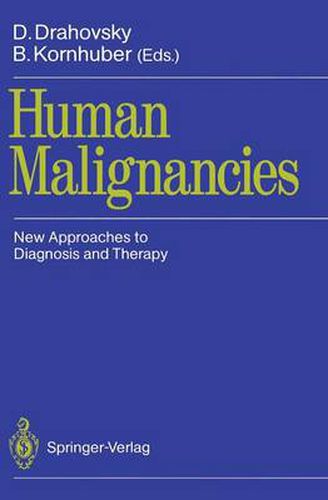Readings Newsletter
Become a Readings Member to make your shopping experience even easier.
Sign in or sign up for free!
You’re not far away from qualifying for FREE standard shipping within Australia
You’ve qualified for FREE standard shipping within Australia
The cart is loading…






This title is printed to order. This book may have been self-published. If so, we cannot guarantee the quality of the content. In the main most books will have gone through the editing process however some may not. We therefore suggest that you be aware of this before ordering this book. If in doubt check either the author or publisher’s details as we are unable to accept any returns unless they are faulty. Please contact us if you have any questions.
To scientists, oncology means research on the disease of cancer. The connection between basic research and clinical oncology, however, is not always very clear. Basic research sometimes appears to be an art that is practiced for its own sake and admired for its perfection. The clinician wishes to interpret the issues addressed by basic research, as he is eager to obtain answers to the questions that clinical oncology leaves open. These are, among others, questions as to the etiology and pathogenesis of neoplasma in human beings. In spite of all the technological advances during the past 10 years, the guidelines for new treatments of human leukemias and tumors are still unsatisfactory. The dialogue between researchers and clinicians must never cease, so that these questions can be formulated in such a way that science may be able to answer them. Both parties should cooperate whenever this is useful and possible. Prospectively planned clinical trials on the diagnosis and therapy of neoplasias offer a good opportunity for research involving patients. Tumor and/or blood tests run by reference laboratories on a great number of patients with the same diagnosis can lead to clinically relevant basic research. Using clinical studies in basic research programs permits us to trace missing pieces in the puzzle of cancer and put them into place.
$9.00 standard shipping within Australia
FREE standard shipping within Australia for orders over $100.00
Express & International shipping calculated at checkout
This title is printed to order. This book may have been self-published. If so, we cannot guarantee the quality of the content. In the main most books will have gone through the editing process however some may not. We therefore suggest that you be aware of this before ordering this book. If in doubt check either the author or publisher’s details as we are unable to accept any returns unless they are faulty. Please contact us if you have any questions.
To scientists, oncology means research on the disease of cancer. The connection between basic research and clinical oncology, however, is not always very clear. Basic research sometimes appears to be an art that is practiced for its own sake and admired for its perfection. The clinician wishes to interpret the issues addressed by basic research, as he is eager to obtain answers to the questions that clinical oncology leaves open. These are, among others, questions as to the etiology and pathogenesis of neoplasma in human beings. In spite of all the technological advances during the past 10 years, the guidelines for new treatments of human leukemias and tumors are still unsatisfactory. The dialogue between researchers and clinicians must never cease, so that these questions can be formulated in such a way that science may be able to answer them. Both parties should cooperate whenever this is useful and possible. Prospectively planned clinical trials on the diagnosis and therapy of neoplasias offer a good opportunity for research involving patients. Tumor and/or blood tests run by reference laboratories on a great number of patients with the same diagnosis can lead to clinically relevant basic research. Using clinical studies in basic research programs permits us to trace missing pieces in the puzzle of cancer and put them into place.